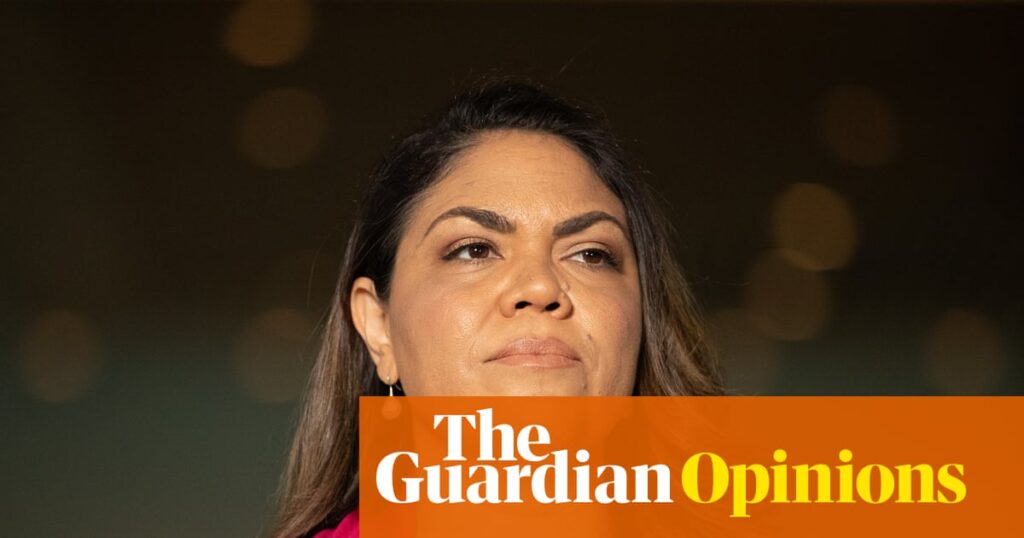
Moments after a press conference where she notably withheld her endorsement of Sussan Ley’s leadership, Jacinta Nampijinpa Price attended a party fundraising event in Perth alongside Michaelia Cash. The event, titled “Reclaiming Liberal Values,” was headlined by Price, Cash, and the Western Australia policy committee chair, Sherry Sufi. It was a pivotal Wednesday afternoon, mere hours before Price’s political demotion was confirmed.
Price’s refusal to retract controversial claims about Labor’s alleged manipulation of the visa system to favor Indian migrants added fuel to the fire. Her stance against “mass migration” and her unwillingness to apologize for her statements underscored the growing rift within the party. The week’s events have cast doubt on Price’s status as a political “rock star,” a label frequently used by her conservative supporters.
The Rise and Fall of a Political Figure
Price’s swift ascent in national politics offers an instructive tale. A former deputy mayor of Alice Springs, she entered the federal parliament in 2022 and quickly became the face of opposition to the Indigenous Voice to Parliament referendum. Her campaign against the Voice, supported by then-Liberal leader Peter Dutton, significantly raised her national profile.
Referendum proposals have historically faced challenges in Australia, and the Voice initiative was no exception. Its defeat, compounded by a lack of bipartisan support, emboldened Price. She soon shifted her focus to other contentious issues, such as transgender women in sports, and even hinted at aspirations of becoming prime minister.
Controversies and Consequences
Price’s rapid rise also made her a frequent figure in the media, particularly within the Canberra press gallery and on Sky News. Her campaigns for audits of Indigenous spending and her clashes with land councils kept her in the political spotlight. However, her provocative style and controversial statements have often overshadowed her achievements.
Her recent comments on Indian migration have sparked outrage within the Coalition. These remarks undermined efforts by Ley and the shadow minister for immigration and multicultural affairs, Paul Scarr, to reconnect with migrant communities. According to the latest census, over 50% of Australia’s population is either born overseas or has an immigrant parent, making these communities crucial for the Coalition’s electoral strategy.
“Indian, Chinese, Filipino, and Vietnamese communities should be natural constituencies for the Coalition,” noted a party insider.
Political Grievance and Its Limitations
Price’s brand of politics, characterized by its social media-driven, grievance-focused approach, has resonated with certain conservative factions but alienated broader voter bases. This style, reminiscent of figures like Donald Trump, seems out of touch with mainstream Australian voters who often view politics as a necessary but inconvenient aspect of life.
Historically, the politics of grievance have found limited success in Australia, often relegated to the political fringes. Figures like Pauline Hanson have occupied this space, but their appeal has been largely confined to niche audiences. Price’s alignment with this approach has drawn support from conservatives like Matt Canavan, Sarah Henderson, and Tony Abbott, but it remains a divisive strategy.
“Any jackass can kick a barn down,” said Sam Rayburn, the legendary speaker of the US House of Representatives, “but it takes a carpenter to build one.”
The Path Forward for the Liberal Party
As Price transitions to the backbench, she is now free from the constraints of shadow ministry responsibilities, allowing her to pursue her agenda without adhering strictly to party lines. This development poses a challenge for Sussan Ley, whose leadership hinges on rebuilding the Liberal Party’s broad appeal.
Price’s demotion underscores the internal struggles within the party as it seeks to balance traditional conservative values with the need to engage a diverse and evolving electorate. While some factions advocate for a return to muscular conservatism, others, like Ley, emphasize the importance of respecting and representing modern Australia.
The Liberal Party’s future may well depend on its ability to reconcile these differing visions and present a unified front to voters. As the party navigates these turbulent times, the lessons of the past and the challenges of the present will shape its path forward.







